
This galaxy is faint, but it is detectable with direct vision. With averted vision, it appears a bit larger. The best view is 150x. The galaxy is not quite round, with an almost stellar core.
I tried locating a couple of other faint galaxies, but the local sky conditions just wouldn't allow it. So I started concentrating on open clusters instead.
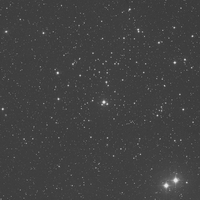
This is a large open cluster, taking up about 2/3 of the field of view at 50x. Most of the stars are a uniform brightness. There are a couple of bright ones forming a pair of eyes about halfway out from center. Off on one edge of the cluster is a really bright pair of stars. There is a spiral arc of stars starting at the center and going out to the bright outer pair. About 30-40 members are visible.
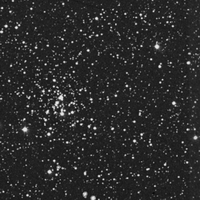
This is right off the tail of the Owl Cluster (NGC 457). At 150x, about a dozen stars are visible, with some nebulosity behind it. They form a 3-toed bird's foot pattern, with the brightest stars at the toes and the dimmer stars at the ankle.
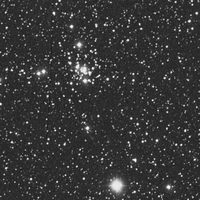
This is a very sparse open cluster. At 150x, maybe 6-7 stars are visible, with a bit of nebulosity, forming a chevron shape.
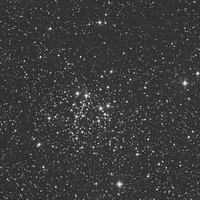
This is a large open cluster, more impressive than M103 and twice the size. I could see 15-20 stars present. The 25mm eyepiece shows it nicely. It looks like an iron with wings on either side of it. I will call this one the Flying Iron.
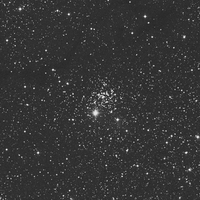
This cluster is about the size of M103. It has one bright star on one edge. The other members are about half as bright, forming little knots of 2-3 stars in an irregular pattern.
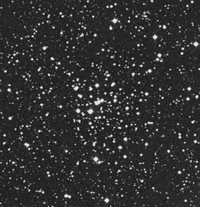
This open cluster is small and faint. About 8 members are visible, forming a loose pentagon. One point of the pentagon has 3 stars, pointing outwards.